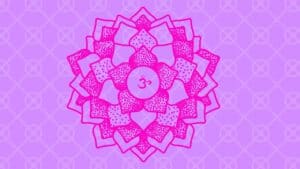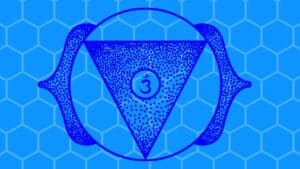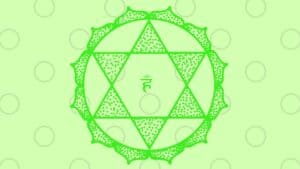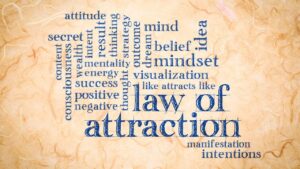
The amount of mental effort we can devote to a task right now is what is meant by the word “concentration.” One secret to productivity and moving up in life is to maintain high levels of concentration. But a lot of us struggle with attention issues. Why? There are a variety of potential causes, and with the digital age, the distractions have just increased. I have found yoga for concentration and mental focus as an effective technique; and in this blog I’ll share my experience and tips on how to sharpen your attention and increase your productivity through this exercise.
But first, let’s look at the causes.
What Leads to Lack of Concentration and Attention?
Poor nutrition, inappropriate supplementation, insufficient exercise, a bad night’s sleep, or even prolonged sleep deprivation, can all contribute to a lack of attention. Your capacity to focus may also be affected by anxiety and poor mental health. When you struggle to focus, you may become frustrated and irritable, which will definitely increase your focus and concentration issues. A self-fulfilling prophecy might occur.
There are several potential reasons people have trouble focusing and paying attention. Let’s look at the typical reasons why people struggle with concentration.
Multitasking: We are always pressured to accomplish more tasks simultaneously in our fast-paced, time-is-money society. Task switching, as it is known in the scientific community, involves two stages of multitasking. Goal shifting refers to the initial phase, which involves choosing to accomplish one thing rather than another. The next step is “rule activation,” which involves switching from the rules of the old task to those of the new.
According to a study by Meyer, Evans, and Rubinstein, switching between many tasks causes people to waste a lot of time, and as the jobs get more complicated, they lose even more time. Furthermore, engaging in excessive multitasking teaches your brain to focus for shorter periods of time and with lower efficiency.
Lack of sleep: There is little doubt that getting insufficient sleep increases the risk of poor productivity at workplace and even irritation in our personal lives.
According to research, losing even one hour of sleep at night is equivalent to losing two years of cognitive development. It is more likely that you will have ongoing issues concentrating if you consistently accumulate sleep deficits.
Lack of interest and challenge: It gets boring to perform the same work over and over. If you ask a youngster (or adult) with to perform the same exercise 100 times, they won’t be able to focus. But give them a fresh, engaging, and difficult project, and suddenly they’ll be concentrating so hard that they won’t be able to accomplish anything else.
The brain tries to save time and energy by paying less attention when we don’t experience variety or difficulty. In other words, we cannot focus when we are bored. Make your duties more interesting by varying them; for example, request new tasks at work, study with a friend rather than by yourself, or carry out your weekly grocery shopping at a different store.
Pressure: It all depends on how you respond to the stress, as Hans Selye famously stated, “Adopting the proper attitude can change a negative stress into a positive one.” Stress can encourage you or demotivate you depending on how much you have of it. However, the appropriate level of stress can enhance performance. Anyone who has faced a deadline with an ever-growing to-do list is well aware of what is meant by this.
Environmental concerns: Although it frequently results in concentration issues, this cause usually has longer-term effects. Your environment, such as excessive use of social media and constant use of mobile, can seriously affect how well your brain can concentrate.
A Look At How Poor Concentration Affects Our Life
Depending on the degree of lack of attention, it might have different consequences on the general health and lifestyle from person to person. These impacts range from bodily afflictions, like lack of sleep, to issues at work or school.
Forgetfulness
Not being able to finish chores or finishing them too slowly
Impeded education
Constantly being distracted
Tiredness (or inability to sleep)
Confusion
A lack of drive
Trataka: Yoga For Concentration And Mental Focus
Now, let’s look at one effective yogic practice to improve your concentration. I am doing this for more than a year now, and have seen significant improvement.
The goal of this practice is to maintain complete concentration on one entity while avoiding outside distractions. In trataka, the primary practise is gazing. Whatever object you choose to use for this, keep your attention fixed on it and don’t budge.
Ancient yogis used candlelight as part of a technique known as Trataka because they understood its healing properties. Trataka literally means “focusing the eyes on one thing”. It is a type of dharana, or focus, and is also regarded as a purifying technique. Trataka can be practised on any object, but candle flames are popular because of their symbolism and beauty and the fact that they leave a distinct afterimage on the retina.
Because Trataka is performed with both eyes open and then closed, this after-image is quite beneficial. Trataka teaches us to concentrate on the thing and to keep that image in our minds even when we close our eyes. It is simpler to develop attention when using a candle, since the intense light from the flame creates an after-image that is clearer and lasts longer.
Actually, Trataka develops at least three of the eight “limbs” of traditional yoga: pratyahara (withdrawal of the senses) by removing all outside distractions, dharana (concentration) by concentrating intensely on that single place, and dhyana (meditation) by stilling the mind.
Deeper stages of meditation are achievable as the technique is honed and one becomes engaged in the experience of the candle flame itself. Of course, you don’t have to be a yogi to take advantage of and feel Trataka’s advantages. A hallowed atmosphere is created, the mind is calmed, and the spirit is lifted as one meditates on a candle.
Trataka is said to have physical advantages as well. Trataka “eradicates all eye ailments, exhaustion, and sloth, and seals the gateway to developing these issues,” according to the Hatha Yoga Pradipika, one of the most revered scriptures on practise and philosophy.
Do you want to practice it? This is how:
Put a candle at eye level in front of you on a firm surface (you can stack books to make it higher so you don’t have to stoop over to look at it). Ideally, it should be around an arm’s length away. To lessen distraction, keep the surrounding space as devoid of objects as you can. I use a candle stand, which helps me adjust the candle and is more convenient.
Turn on the candle. Rest your eyes at the top of the wick itself.
Do not blink, please. Tears will flow from the eyes. To maintain this despite eye tearing may require multiple trials. Blink if necessary, but attempt to limit this.
For roughly three to five minutes, keep looking. Then, close your eyes and concentrate on the internal image of the flame. Try to maintain a candle flame image for several minutes, preferably at the third eye, which is located in the centre of the forehead, between and just above the eyebrows.
Repeat the steps from 2 to 4, for a few minutes. Ideally, 15 minutes of daily practice of Trataka will prove highly beneficial.
Don’t worry if you struggle with it. Starting off, it can be challenging to keep the gaze, and for certain people, it might be even more challenging to maintain the mental image. You’ll eventually learn it with practise. To appreciate your experience, be kind to yourself, don’t concentrate too hard, and let go of your expectations.
The Health Advantages of Trataka
In addition, to developing concentration and focus, Trataka has other benefits too.
It eases headaches and lessens their frequency
Helps with concentration
Aids in treating eye ailments
Relaxes eye muscles
Strengthens mental health
Decreases tension and stress
Makes your eyes naturally clean
Cures insomnia
Wall Gazing & Pebble Gazing
Similar to Trataka, there is another practice, which has links to Zaren meditation, and is called as wall gazing. There is a history behind wall gazing and its origination.
It is well known that the iconoclastic Buddhist monk Bodhidharma, who descended from a royal lineage in Southern India, showed an early and profound comprehension of the dharma. He was inspired to go to China in order to spread the “True Dharma Eye” by his instructor, the twenty-seventh ancestor, Prajnatara. Around 520 CE, he landed in China. He stood out from other Indian monks because, unlike other pilgrims to China, he did not carry any fresh Buddhist texts. Bodhidharma didn’t translate religious materials, nor did he deliver sermons or impart teachings on the sutras. He was not a missionary in the traditional sense of the word and did not proselytise.
According to legend, Bodhidharma just spent nine years at the Shaolin Temple sitting in zazen with his back to the wall. As a result, he earned the moniker “wall gazing monk”. People, with the exception of his few disciples, even struggled to grasp the actual significance of his profession. But what he was doing, is greatly beneficial to develop concentration and even achieve higher states of meditation.
Although I practiced wall gazing too on a couple of occasions, regularly I follow pebble gazing. Pebble gazing is a slight variation of wall gazing. In this, I sit in the yoga posture and keep a pebble on my palm of my right hand. I then gaze on it for a few minutes. Similar to trataka practice, I have experienced tears roll off the eyes. The only difference between pebble gazing and trataka is that, in pebble gazing, the eyes are not closed to focus on the afterimage.
To Conclude
Developing your ability to concentrate mentally takes time. Even elite athletes need a lot of time and repetition to improve their ability to concentrate.
Recognizing the effects that being distracted is having on your life is one of the first stages. It’s time to give your time more worth if you are having trouble achieving your goals and discover that irrelevant details easily distracted you.
Your ability to do more and concentrate on the aspects of life that actually offer you success, joy, and happiness will increase as your mental focus increases.






































